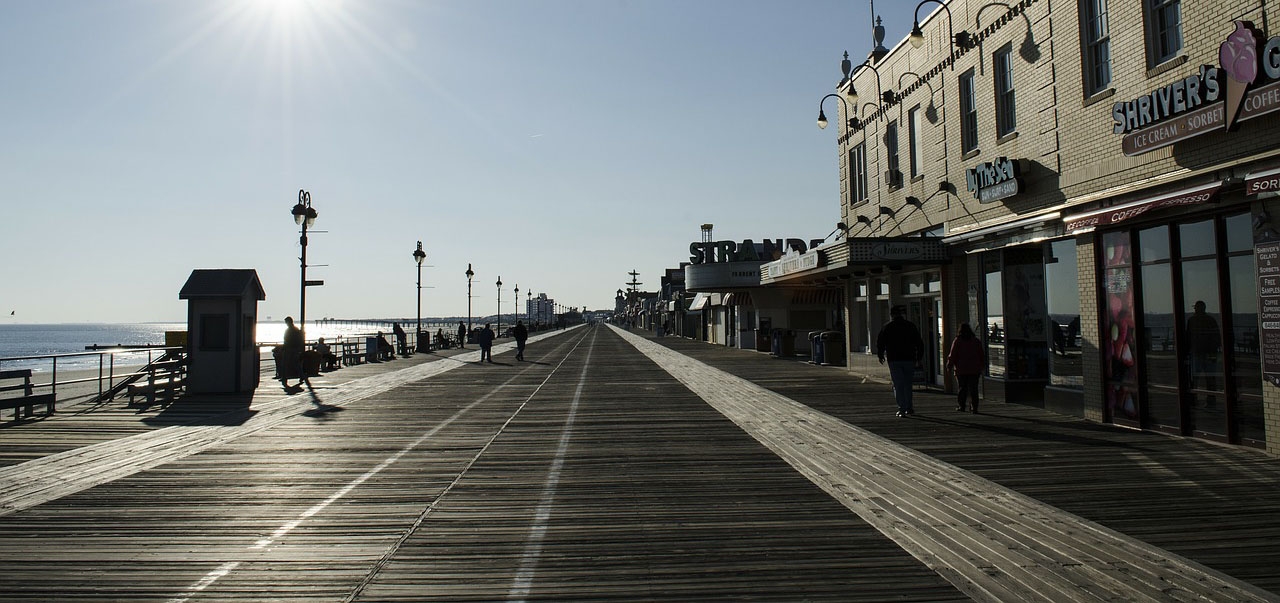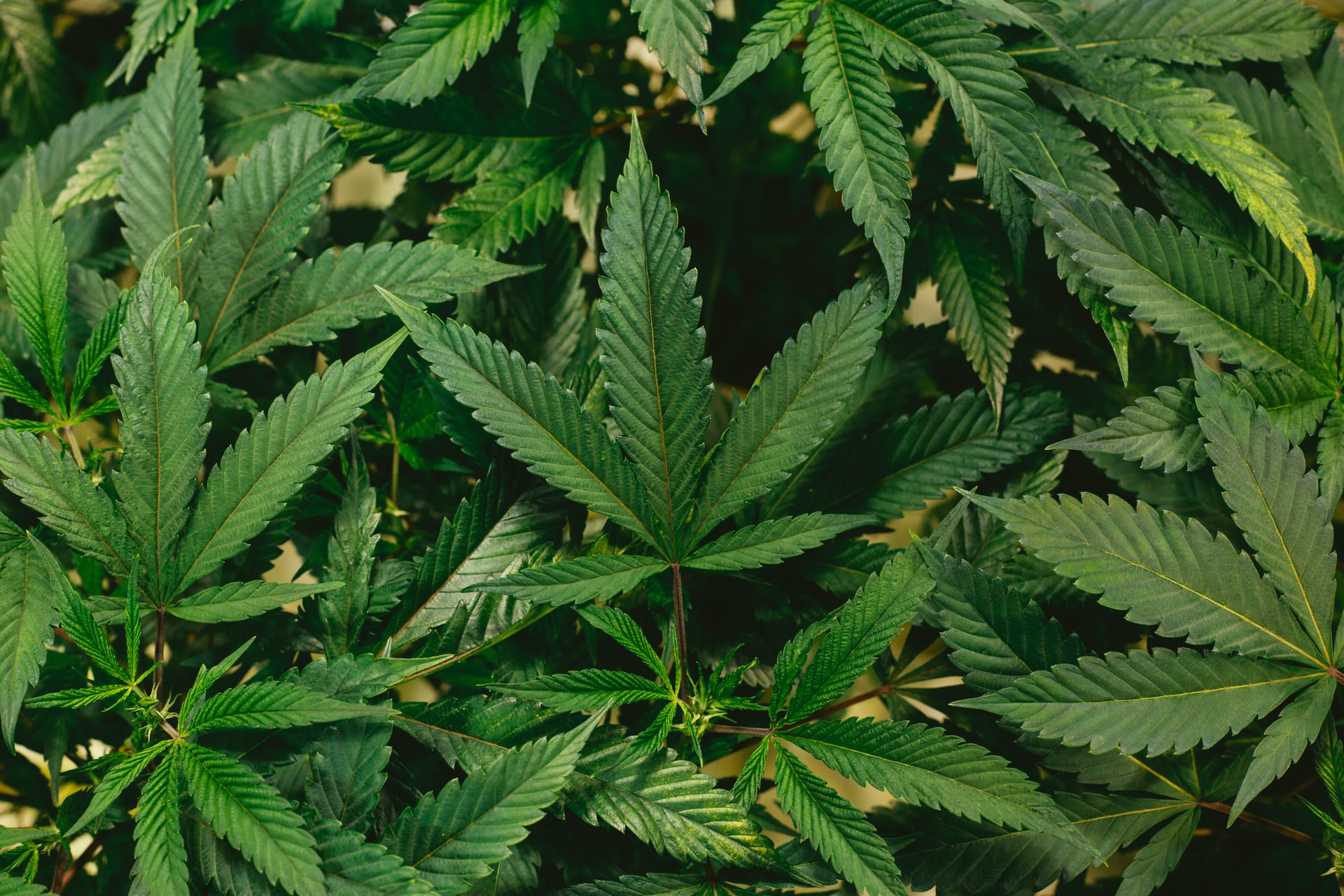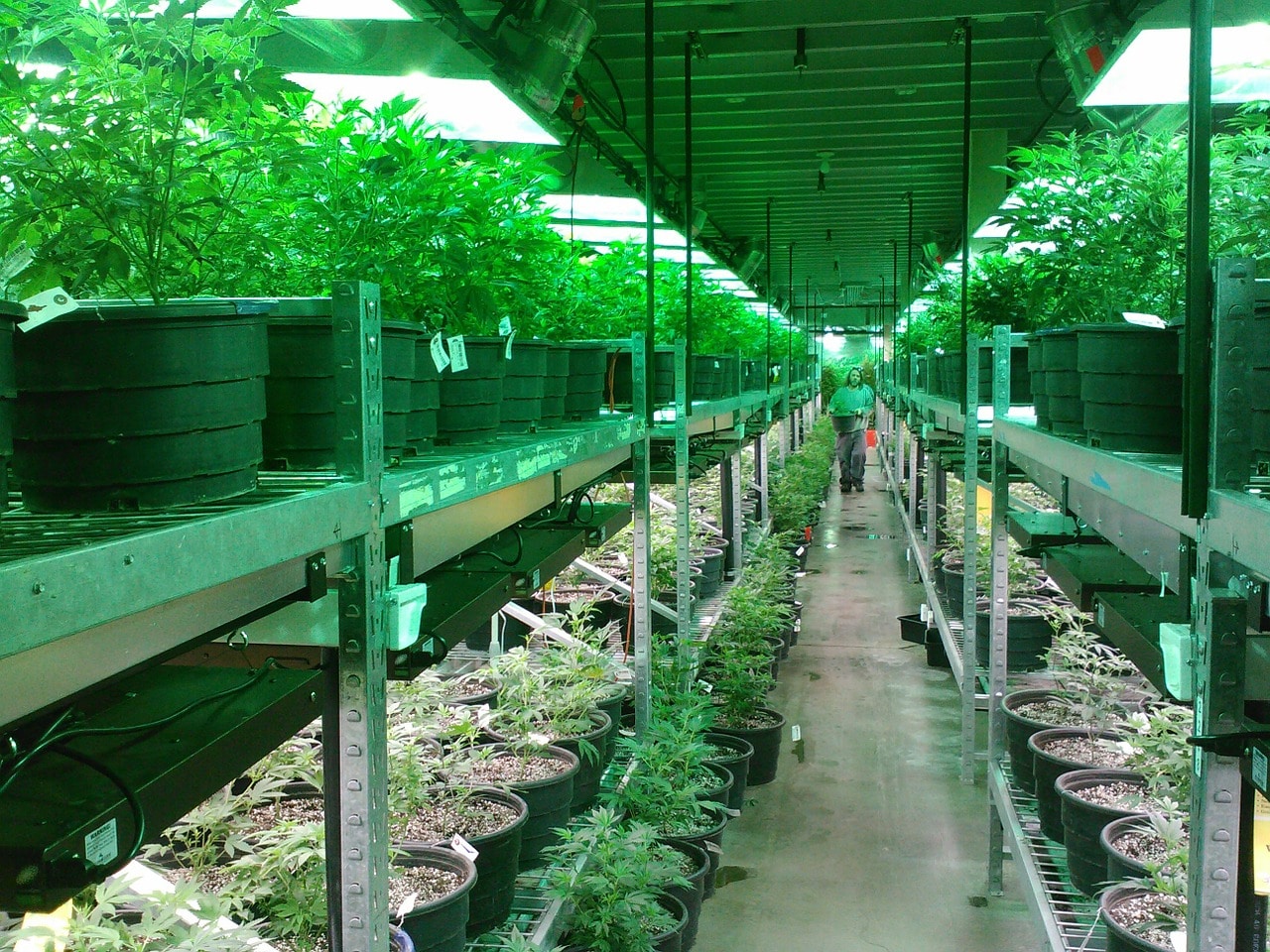
by The Real Dirt | Nov 18, 2021 | Blog, Business, Cannabis Business, Cannabis Law, Cannabis Law and Compliance, Cannabis News, Industry News, Legalization
The state’s Cannabis Regulatory Commission (CRC) will begin accepting applications for recreational cannabis businesses beginning on Dec. 15.
At today’s New Jersey State League of Municipalities Conference in Atlantic City, the chair and executive director of the CRC discussed application and licensing rules and processes, including the types of businesses that will initially receive priority review of applications.
Before a packed conference room at the Atlantic City Convention Center, Dianna Houenou, CRC chair, said two types of recreational cannabis licenses will be given: conditional and annual.
“The annual license is the bread and butter of what we typically think of when someone is applying for a license. It gives business owners the authority to operate the cannabis operation year round,” Houenou said.
The newer conditional license delivers more of a provisional approval from the CRC. This is a license the commission can issue to applicants even if they haven’t identified a property and still have to work with a municipality in order to get necessary approvals and processes in place.
“The conditional license is meant to give applicants extra time to get all of their ducks in a row. … They then have 120 days to meet the additional requirements for the annual license,” Houenou commented.
Whether conditional or annual, the types of cannabis licenses are classified into six operational groups: cultivation, manufacturing, wholesale, distribution, retail and delivery services. Additionally, testing labs also have to be licensed by the CRC.
Within these groups, businesses can have additional designations, which are more of a description of ownership and size of operations.
According to Houenou, they are: microbusinesses (smaller operations, constrained by statute with respect to size, the amount of products handled, and the number of employees); social equity businesses (owned by people who have lived in economically disadvantaged areas or who have past convictions for cannabis offenses); diversely-owned businesses (minority-owned, woman-owned, or disabled veteran-owned businesses certified by the New Jersey Department of Treasury); and impact zone businesses (municipalities with a large population, high unemployment rate, or high numbers of crime or arrests for marijuana).
The CRC will be giving priority review to conditional applications as well as social equity businesses, diverse and impact zone businesses.
Houenou explains: “If you look across the country, historically you can see how the need for property control has posed a barrier for a number of applicants looking to operate [a cannabis] business. … We decided to lessen that burden as much as we could. So, we are prioritizing conditional license applications ahead of annual license applications.”
According to Jeff Brown, CRC executive director, the commission is not limiting the licenses it is granting at the state level, although it has the authority to do so. For now, he says, the goal is to let the market grow and develop.
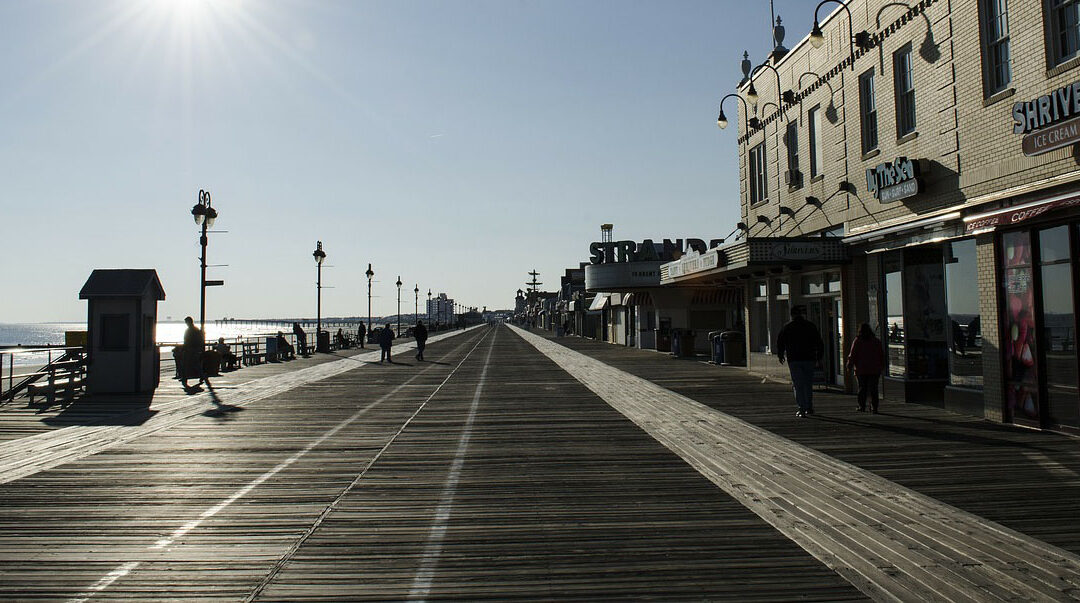
by Travis C | Nov 10, 2021 | 420 News, Blog, Business, Cannabis Business, Cannabis Law, Cannabis Law and Compliance, Cannabis News, Industry News, Legalization, Medical Marijuana
After missing a September deadline to begin licensing recreational cannabis businesses in New Jersey, the Cannabis Regulatory Commission has announced it will begin accepting application on December 15, 2021. However these applications will only be available to growers, processors and testing labs.
Applications for dispensaries will not be available until March 15, 2022. The New Jersey cannabis legalization law originally mandated legal sales begin by mid-February 2022, or six months after the commission adopted its initial rules.
However due to the past delays, the likelihood of cannabis businesses being up and operational by February 2022 is low. The Commission however has said that during the time that they delayed the application process, they created a way to better process applications, implicating the process could move more quickly than initially expected.
New Jersey currently has medical cannabis dispensaries across the state, which is the only legal way to obtain cannabis currently and requires a patient card to purchase cannabis. The state has recently issued 14 new medical dispensary licenses, however these stores must be in operation for one year before they can apply to also sell recreational cannabis.
The Cannabis Regulatory Commission is concerned that due to their delays, there won’t be sufficient supply of cannabis for recreational sales come February. However, already established dispensaries will have the option to apply for recreational sales, and many owners of these businesses say they are ready for recreational sales now with plenty of cannabis in stock.
The New Jersey cannabis legalization bill also allows for delivery, distributors and wholesalers in the recreational cannabis industry. However the Commission has yet to establish the rules for guiding these license types, and a date to begin applications has not been set.
When applications for businesses begin, women-, veteran- or minority-owned businesses will have priority. If an applicant has been arrested for marijuana or lives in a municipality with disproportionate rates of marijuana arrests or is economically disadvantaged, they too have priority. Additionally the rules allow priority for micro-businesses, or those with 10 employees or less.
The Commission will hold an informational webinar on November 30 for those who want to apply for licenses. The Commission has also heard comments on labeling for cannabis products, as well as invited testimony regarding cannabis edibles.

by Travis C | Sep 28, 2021 | Blog, Business, Cannabis Business, Cannabis Law, Cannabis Law and Compliance, Cannabis News, Industry News, Legalization, Politics

Nearly a year after passing a constitutional amendment to legalize cannabis, New Jersey has yet to open a single retail cannabis store. While the industry has yet to take off, that isn’t stopping regulators from preemptively banning one of the most popular cannabis products.
When it comes to the cannabis products that consumers want, flower remains king. Vaporizer pens and concentrates for dabbing have been slowly catching up with flower as consumers seek a quicker way to get the desired effects of cannabis without burning the plant itself.
However, cannabis edibles have also been gaining popularity. Avoiding the need for any sort of inhalation at all, edibles are great for consumers who don’t want to vape or smoke, but still want the effects of cannabis.
Cannabis beverages have seen the greatest growth since the beginning of 2020, when cannabis sales skyrocketed across the country due to the COVID-19 pandemic. Cannabis capsule products have also grown noticeably in popularity, showing that consumers are seeking a way to consume cannabis without, well, consuming traditional cannabis.
With such growth in the edible cannabis market, it would seem obvious to any potential industry that is about to open that edibles will be a high-demand product. Higher demand means higher profits, which is what any state is seeking when legalizing cannabis.
Unless you’re New Jersey.
Ban on almost all cannabis edibles
Despite having no functional legal cannabis industry to base their decision, regulators in charge of New Jersey’s recreational cannabis have decided to ban all forms of edible cannabis products except for lozenges. This means traditional products consumers would likely be familiar with — cookies, brownies, gummies, beverages — are all prohibited.
The reasoning behind the ban is the same used by many states when they first legalize; the children. Concern over edible products that might appeal to children is a consistent issue in the legal cannabis industry.
While other states passed new regulations requiring child-proof packaging and prohibiting edibles from being designed in a manner that would be appealing to kids (i.e. gummy bears, star-shaped cookies, etc.), New Jersey has decided to take a much more restrictive approach.
According to the new set of regulations passed by New Jersey cannabis regulators, “ingestible forms of cannabis… shall only include syrups, pills, tablets, capsules, and chewable forms.”
A growing and thriving grey market
Just because regulators are dragging their feet in getting a functional legal cannabis industry up and running doesn’t mean that the people aren’t already taking advantage of the new law. Seemingly taking a tip from the Washington D.C. playbook, New Jersey has begun to develop a thriving grey market industry.
While there is nowhere to legally buy or sell cannabis directly, there’s a workaround. Similar to how D.C.’s grey market operates, New Jersey currently has a gift/donation system in place to skirt the current regulations.
In this grey market, a consumer may find a delivery service online. One the website one might see several different cannabis products, or “packages” as they might be called. However that isn’t technically what the consumer is buying.
Instead, the cannabis product is simply a “gift” that is included with the purchase of another item on the website. This might be a sweatshirt, a t-shirt, or even something as small as a sticker. The price of the sticker may be around $40, which conveniently is the same price as an eighth of cannabis.
Within a couple hours, a delivery driver will be at the door with the sticker and the included gift, and bam you just “bought” legal cannabis in New Jersey. But just like D.C.’s grey market, the grey market in New Jersey is completely unregulated.
Although a legal cannabis company has to follow strict regulations on manufacturing and packaging, an unregulated market like that which is blooming in New Jersey has no such restrictions. So while regulators may think they are making progress by banning various forms of edible cannabis products, these new rules will be all but ignored by those operating in the grey market already.
In other words, the new regulations can’t possibly have any sort of impact until there is an actual legal industry to enforce them. As regulators take their time getting the legal cannabis industry up and operational in New Jersey, the grey market will continue to thrive only making it more complicated to get legitimate businesses licensed and running.
If you are interested in learning more about the New Jersey cannabis industry, need assistance with licensing, planning and implementation of your business plan, Greener Consulting Group can help you stay on top of the latest regulatory changes, fees and best practices for getting ahead of the competition when the industry takes off.

by The Real Dirt | Sep 17, 2021 | Blog, Business, Cannabis Business, Cannabis Law, Cannabis Law and Compliance, Cannabis News, Industry News, Legalization, Medical Marijuana
New Jersey’s cannabis regulators on Tuesday moved to streamline the licensing of new weed businesses and approved another marijuana grow site — but it did not announce the recipients of some two dozen businesses that have sat in limbo for nearly two years.
The state’s Cannabis Regulatory Commission met on Tuesday evening to approve the transfer of an existing medical marijuana license, a new marijuana grow site and a system to help it process applications for new cannabis businesses.
All signal the state is gearing up for legal cannabis sales.
The commission unveiled its initial rules to guide the legal weed industry last month. That set the clock ticking down to launch sales to those 21 and older — according to the law, they must start within six months of the commission adopting its regulations.
But the commission gave no word on the 2019 request for applications to operate new medical marijuana facilities. Some 150 entities saw a review of applications paused in late 2019 due to a lawsuit. But a court ruled earlier this year that the commission could resume its evaluation and award those 24 licenses.
So far, the commission has not issued any of the new licenses. Jeff Brown, the commission’s executive director, has said licenses will come soon, but regulators have not given a date by when they will announce the new licenses.
“It is not lost on us that everyone is eager to get that moving forward, as are we,” Dianna Houenou, the commission’s chair, said during the meeting. She said the commission was working quickly to score them, but emphasized the need to “double” and “triple” check each.
Still, frustration dominated the meeting.
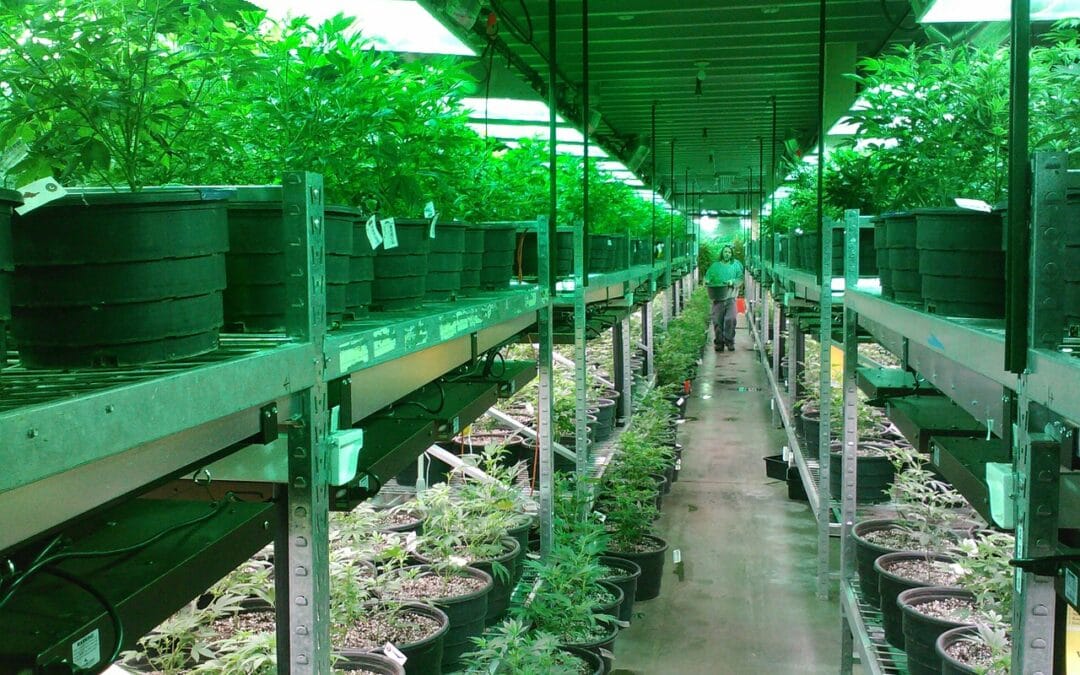
by The Real Dirt | Aug 20, 2021 | 420 News, Blog, Business, Cannabis Business, Cannabis Law, Cannabis Law and Compliance, Cannabis News, Industry News, Legalization
New Jersey’s Cannabis Regulatory Commission has approved rules to set up the state’s recreational marijuana marketplace.
TRENTON, N.J. (AP) — New Jersey‘s cannabis regulators on Thursday approved rules to set up the recreational marijuana marketplace, giving application priority to women-, minority- and disabled veteran-owned businesses and paving the way for sales to begin.
A timeline for when people 21 and older could head to a retailer to buy a marijuana cigarette, vape pen or edible wasn’t given, but chairperson Dianna Houenou said after the meeting that a date for when sales can begin hasn’t been set yet because the commission wants to be sure that the application process goes smoothly. She said the start date is “admittedly uncertain.”
“We know that there is a lot of interest in getting this market up and running and we were duty-bound to do it right,” she said in a separate statement.
The five-member commission, which was established under a February law, voted unanimously to approve the the 160-pages of regulations. The rules got expedited treatment under the law, sidestepping the usual public comment and response period.
Commission executive director Jeff Brown said a next step will be a notice that applications will be accepted.
The rules focus heavily on what commissioners called equity — a main driver of the legislation because of years of disproportionate enforcement of marijuana laws against Black residents in particular.
Among the rules is priority for applications from companies owned by minorities, women and disabled veterans, as well as for those from poor areas and past marijuana-related criminal offenses.
Application fees were designed to be low to encourage small business owners, and not just major firms, from applying, with fees as low as $100. Annual licenses for microbusinesses — firms with 10 employees — will cost $1,000. Large businesses could pay up to $50,000 for an annual cultivator license.




